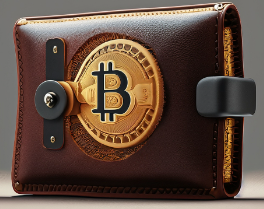bbc.towzdog.com – Bitcoin Wallet Reviews: Find the Best Wallet for Your Needs With the growing popularity of Bitcoin and other cryptocurrencies, choosing the right Bitcoin wallet is essential for both security and ease of use. In this guide, we’ll provide Bitcoin wallet reviews that compare the top wallets available today, covering different types like hardware, software, and mobile wallets. Whether you’re new to Bitcoin or an experienced user, this guide will help you make an informed choice.
What is a Bitcoin Wallet and Why is It Important?
A Bitcoin wallet is a digital tool that allows you to securely store, send, and receive Bitcoin. There are various types of wallets, each serving different needs in terms of accessibility, security, and features. Wallets can be hot (online) or cold (offline), with each type offering different levels of security.
Types of Bitcoin Wallets: Hot vs. Cold
- Hot Wallets: These wallets are connected to the internet, providing easy access for frequent trading. They are generally faster and more convenient but less secure than cold wallets.
- Cold Wallets: Offline wallets like hardware wallets are highly secure, as they are not connected to the internet. However, they are less convenient for quick access or frequent transactions.
Top Bitcoin Wallets Reviewed
Now, let’s dive into reviews of some of the best Bitcoin wallets available. We’ll cover wallets that cater to different needs—whether you want maximum security, ease of use, or accessibility on mobile devices.
1. Ledger Nano X: Best for Maximum Security
The Ledger Nano X is widely regarded as one of the most secure hardware wallets available. Known for its cold storage feature, the Nano X keeps your private keys offline, minimizing the risk of hacking.
Key Features
- Offline Security: As a hardware wallet, it provides cold storage, making it highly secure.
- Bluetooth Connectivity: Allows easy access via Bluetooth without compromising security.
- Multi-Currency Support: Supports not only Bitcoin but also a range of cryptocurrencies.
Pros and Cons
- Pros: Excellent security, mobile access, and support for various coins.
- Cons: Higher price point, and the Bluetooth feature can raise security concerns for some users.
For more information on the Ledger Nano X, see Ledger’s official page.
2. Trezor Model T: Best for Advanced Users
The Trezor Model T is another top-tier hardware wallet, designed for users who prioritize security and advanced functionality. Its touchscreen interface and multi-currency support make it user-friendly for those with experience in crypto management.
Key Features
- Touchscreen Interface: Makes it easier to operate compared to traditional button-based hardware wallets.
- High-Security Standards: Like Ledger, it provides cold storage and supports multiple assets.
- Passphrase Support: Allows for an extra layer of security with a passphrase feature.
Pros and Cons
- Pros: User-friendly touchscreen, excellent security, and support for a large number of assets.
- Cons: Higher cost and may have a learning curve for beginners.
3. Exodus: Best for Beginners
Exodus is a software wallet that combines ease of use with extensive features, making it ideal for beginners. It has an intuitive interface and integrates with ShapeShift, allowing users to exchange cryptocurrencies directly within the wallet.
Key Features
- Simple Interface: Designed to be easy for beginners to navigate.
- Built-in Exchange: Users can easily exchange Bitcoin and other assets within the wallet.
- Multi-Platform Support: Available on desktop and mobile, allowing for seamless access.
Pros and Cons
- Pros: Easy to use, built-in exchange, and no complicated setup required.
- Cons: Hot wallet, which means it is more vulnerable to online threats than hardware wallets.
4. Mycelium: Best for Mobile Users
For those who prefer managing their Bitcoin on a mobile device, Mycelium is one of the top options. Known for its security features and open-source nature, it is a popular wallet among mobile Bitcoin users.
Key Features
- Advanced Security: Provides hardware wallet integration and support for private keys.
- Highly Customizable: Offers a range of privacy features and transaction speed controls.
- Open Source: The wallet’s open-source design makes it trustworthy and transparent.
Pros and Cons
- Pros: Mobile-focused, open-source, and supports hardware wallets for added security.
- Cons: Limited to mobile use, so it’s not ideal for users who prefer desktop platforms.
5. Trust Wallet: Best for DeFi Users
Trust Wallet is a mobile wallet with a strong focus on decentralized finance (DeFi) applications. Backed by Binance, it is known for its user-friendly interface and access to DeFi apps and other digital assets.
Key Features
- DeFi Access: Integrates with popular DeFi apps, allowing users to access decentralized finance directly.
- NFT Support: Trust Wallet allows for NFT storage and interaction, a feature not all wallets offer.
- Staking Opportunities: Users can stake various assets directly within the wallet for passive income.
Pros and Cons
- Pros: Great for DeFi users, NFT support, staking options, and mobile access.
- Cons: Limited to mobile devices and can be complex for beginners unfamiliar with DeFi.
How to Choose the Right Bitcoin Wallet for Your Needs
Selecting the right Bitcoin wallet depends on your needs, budget, and security preferences. Consider the following factors:
- Security: Hardware wallets like Ledger and Trezor offer the highest security but may not be as convenient for daily transactions.
- Ease of Use: Software wallets like Exodus are ideal for beginners but lack the robust security of hardware wallets.
- Accessibility: Mobile wallets like Mycelium and Trust Wallet are best for users who want access on the go.
Why Security Matters: Understanding Wallet Safety
Bitcoin wallets use private keys to secure your assets, making them critical for protecting your holdings. In the world of cryptocurrency, if someone gains access to your private key, they effectively control your funds. Wallets offer varying levels of protection:
- Hardware Wallets: Best for long-term storage, keeping your private keys offline and safe from hackers.
- Software Wallets: Convenient for frequent transactions but more susceptible to online threats.
- Mobile Wallets: Provide quick access but need extra security measures like two-factor authentication.
Common Security Risks for Bitcoin Wallets
Understanding wallet security risks is key to protecting your assets. Some of the most common threats include:
- Phishing Scams: Attackers may use fake websites or messages to trick you into giving up your private key or wallet information.
- Malware and Hacks: Always download wallets from official sites to avoid malware or compromised software.
- Lost Private Keys: Unlike a password, a lost private key cannot be recovered, and you risk losing access to your Bitcoin.
Bitcoin Wallet Fees: What to Expect
Each wallet has different fee structures, especially when it comes to Bitcoin transactions. Some wallets are free to download but may charge fees for certain services, while others include fees as part of their business model.
- Transaction Fees: Many wallets charge small fees per transaction, especially during periods of high network congestion.
- Exchange Fees: Wallets like Exodus that offer built-in exchanges may include exchange fees, which can be higher than standalone exchanges.
By following this Bitcoin wallet reviews guide, you can find a wallet that suits your needs and investment goals. Remember to prioritize security, ease of use, and access to additional features like staking or DeFi apps if they align with your investment strategy. Choosing the right Bitcoin wallet is the first step to securely managing your cryptocurrency assets.




